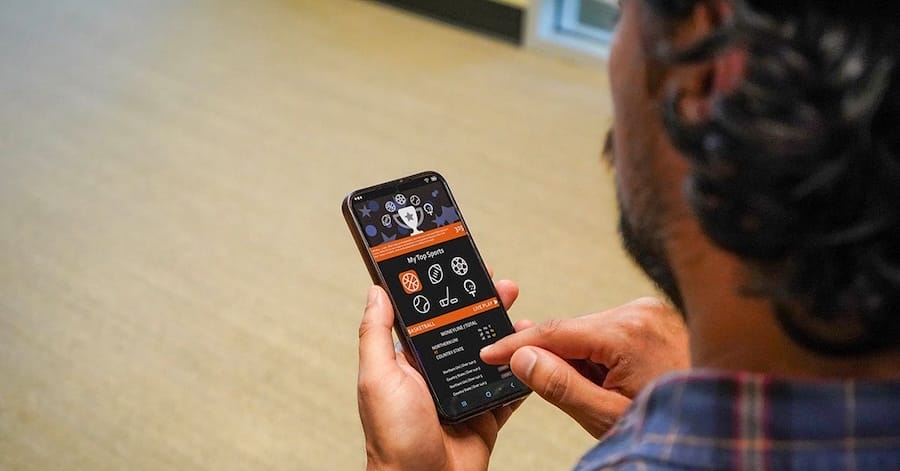Gambling can be as addictive as drugs or alcohol. Known as a process or behavioral addiction, it can trigger a similar rush by releasing dopamine, the “feel-good” chemical in the brain. When heavy drinking and gambling occur together, the combination can take a real toll on mental health, finances, and relationships. These behaviors often overlap, especially for people who bet on sports.
How Do People Become Addicted to Gambling?
The dopamine released during gambling is similar to what some people experience when they drink or use drugs. The excitement of placing a bet, and the rush of a win, can reinforce the urge to chase that feeling. Sports betting can be especially sticky: games last a while, and there are many options beyond who wins, including “prop bets” on first scorers, halftime leaders, and individual performances.
While gambling usually doesn’t cause the same physical withdrawal as substances, many people notice the absence of that rush when they try to stop. Over time, gambling can escalate and become harder to control, even when it leads to losses, debt, or strain in important relationships.
The impact on families can be deep. Drinking and gambling together can erode trust, create financial stress, and destabilize the home. With the right support, families can begin to repair and rebuild.
Sports Betting and Addiction
With the growth of legalized sports betting, clinicians increasingly recognize gambling disorder as a real addiction. People who gamble may underestimate the risks or miss early warning signs, especially when betting is framed as entertainment. Knowing what to look for can help you reach out sooner.
From the outside, gambling problems can seem obvious, especially when money is being lost. For the bettor, it may feel like a hobby, often paired with drinking while watching games. Alcohol lowers inhibition, which can lead to bets you didn’t plan to place. After a loss, some people drink to cope; after a win, they might drink to celebrate. In this context, it can be hard to separate gambling from drinking.
Many people with gambling problems do not recognize the extent of the issue at first. Like substance use, gambling can involve needing more, or higher-risk bets, to feel the same excitement, feeling irritable when trying to cut back, and struggling to stop despite mounting consequences.
Gambling addiction often benefits from professional support. Treatment can include therapy, peer groups, and, when needed, medication for co-occurring mental health concerns. When drinking and gambling occur together, addressing both at the same time is usually the most effective path, since change in one can trigger the other. Many people find that abstinence and ongoing support offer the best foundation for recovery.
Why Are Drinking and Gambling So Popular?
A recent study of 4,363 U.S. adults (2022–2024) found that about one in five placed a sports bet annually, and that sports bettors reported higher rates of binge drinking than non-gamblers or those who engaged in other forms of gambling. For many, increased gambling and increased drinking tend to occur together, which can heighten risk.
Some venues that host sports betting also serve alcohol and encourage patrons to stay engaged. As drinking increases, judgment can slip, and it becomes easier to lose track of spending or financial obligations in the moment.
Who Is Most Likely to Have a Problem with Drinking and Gambling?
Research suggests that men, younger adults, and some higher-income groups report higher rates of both heavy drinking and gambling. Cultural norms around sports and social drinking can play a role, as can access to discretionary income. Over time, the financial and emotional costs can add up, which is why early support matters.
Sports culture often includes alcohol. Whether at a stadium or a sportsbook, the atmosphere can be celebratory, including friends cheering, buying rounds, placing bets. In these settings, drinking can increase risk-taking, including wagers you did not plan to make.
If gambling leaves you feeling worse, even as you keep doing it, it may be time to talk to someone. Like drinking, gambling deserves to be taken seriously, and support is available. The first step is simply reaching out.
Getting Help with Drinking and Gambling
Recovering from both drinking and gambling often benefits from an integrated approach that treats underlying causes. Alcohol use disorder and gambling disorder both affect the brain’s reward system and often reinforce each other.
Recovery starts with acknowledging what is going on, then seeking support. Options include professional treatment programs, peer support groups like Alcoholics Anonymous (AA) and Gamblers Anonymous (GA), and integrated therapy that addresses both concerns at once. You do not have to do this alone.
Recovery is a process, and progress is not always linear. With the right support, many people successfully manage both addictions and rebuild their lives. Because families are affected too, family therapy, open communication, and mutual support can help restore trust and stability.
Healing together helps break harmful cycles and supports long-term recovery for everyone involved. Reaching out is a powerful first step. At Costa Rica Recovery, we provide compassionate, integrated care for people facing both drinking and gambling challenges.

Scott Huseby
In Scott Huseby’s previous career, he led one of the most respected litigation support firms in the United States. Yet beyond his professional success, Scott discovered a deeper purpose after experiencing the healing power of recovery firsthand.
That calling led him to Costa Rica, where he became the owner of Costa Rica Recovery in San José– a holistic, participant-centered haven for individuals seeking freedom from addiction. Since then, Scott has opened additional treatment centers and become the owner of Cornerstone Recovery in Santa Ana, California (United States). Now he uses his leadership and lived experience to walk alongside others on their recovery journey, offering the same hope and healing that changed his life.
To learn more about Scott and Costa Rica Recovery, call 1 (866) 804-1793 or visit www.costaricarecovery.com







